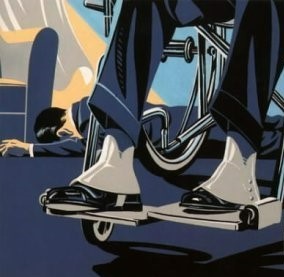The story of The Plague is about a plague that wraps the city of Oran, isolating the city completely from the outside world. Cut off from the world, parted from their loved ones, and faced with a deadly enemy, the people of Oran live with great anguish and in isolation. It is believed that the story was influenced by a cholera epidemic that saw the death of a large number of people in Oran in the mid-19th century. And it is also believed that metaphorically the story refers to the time of Nazi occupation in France and the French resistance against the Nazis. Whatever the case may be, to my understanding, the story is an account of human conduct in the face of a calamity. Choosing different characters and through them, Camus dwells on how people individually and collectively act when they are faced with a catastrophe. He also penetrates deep into the human mind and exposes the temporary and permanent changes in individual persons as well as collectively in the society that takes place in such a situation.
While Camus’s philosophical thoughts held my interest in the book, reading it was quite a struggle. There were many long and tedious paragraphs which at times wandered away from the topic, and there was no beautiful prose to cater to your heart. But, despite all this, I could not put it down. The story demanded my attention in such a way that all I could do was submit. I was deprived of the choice of whether to continue or not. All along I was burdened with an uneasy feeling that if I give up I would be guilty of doing something wrong (it sounds funny, I know).
Anyhow, I was glad that I read it through. I can even say that I liked it in my own way; philosophical and monotonous perhaps; but what does that matter, if it pleases you.
Rating: 4/5



